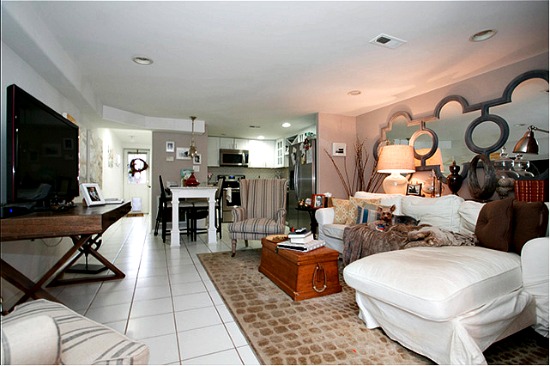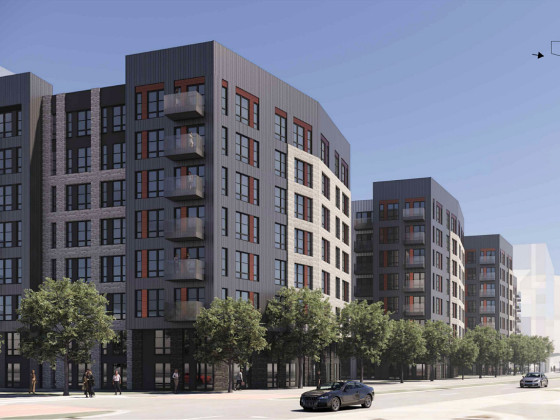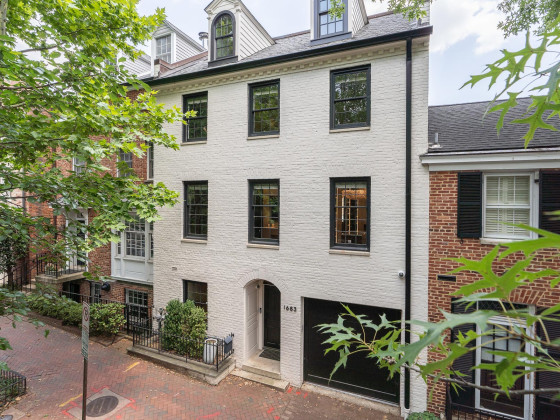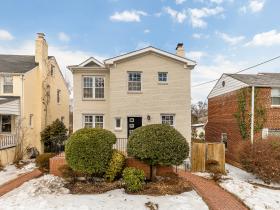 First-Timer Primer: Renting Out Your Basement
First-Timer Primer: Renting Out Your Basement
✉️ Want to forward this article? Click here.

An English basement for rent near H Street.
This article was originally published on UrbanTurf in 2014, but we are re-publishing now, with the summer housing crush upon us, for would-be landlords hoping to rent out their English basements.
Many home buyers on the hunt for a rowhouse in DC these days are looking for some type of lower level unit that will help offset their monthly mortgage payments.
But if you buy a home with an income property downstairs (or at least the potential for one), there are many things to take into consideration. UrbanTurf recently spoke with a reader, Anita, who bought a rowhouse with a rentable unit downstairs. She shared the details on what to consider if you’re thinking about taking the landlord leap.
Her biggest piece of advice? Do your homework.
Specifically, know what buying a home with an income property could do for your mortgage — but don’t assume you’ll always want or be able to have a tenant occupying the space.
“Be conservative,” she said. “You could have a situation where your unit sits vacant, so you really need to be able to afford the house [without always having the unit rented]. But if you can do that and then you end up renting out the place, you stand to save a whole bunch on your mortgage.”
DC sellers know how much a nice basement rental can shave off a monthly payment, so homes are priced to reflect that. A house in Mount Pleasant with a two-bedroom rental downstairs recently incited a wild bidding war and sold for about $200,000 above asking. The rental fetched $2,400 a month.
Once you’ve found the basement-outfitted home you are looking for, it’s time to pull out the measuring tape. In DC, basement ceilings must be a minimum of 7 feet high in habitable spaces, and a little less than that in kitchens and bathrooms. Two means of egress as well as separately metered heating and cooling systems are required in order to qualify for a Certificate of Occupancy.
Fixing any issues with the rental can be costly. In Anita’s case, the previous owner had already taken on the onerous and expensive task of digging out the basement, underpinning the foundation and pouring a new concrete slab downstairs.
Whether or not the basement is up to code, currently rented and properly licensed will have an impact on the price, so if that work has been done, make sure to request documentation from a seller before closing on the home. UrbanTurf has written on this topic before, but it bears repeating: An unlicensed unit can be a nightmare in our tenant-friendly city. Without the right paperwork, Anita tells us, landlords have very little recourse in the District’s legal system. The tenant documentation took Anita about six hours to complete, she said. If you’re not willing or don’t have time to do the paperwork, consider whether you’ll have time to be a landlord 24 hours a day — especially when your tenant is just downstairs.
If the basement space needs renovating, be choosy. Anita mentioned the importance of picking durable and, to the extent possible, inexpensive finishings that are easy to clean and maintain. Tile floors — wood-effect tile is looking more realistic these days, she said — are a great choice. And for the walls, “exposed brick markets really well,” she said. “You don’t have to paint it every time you get a new tenant.”
Have an inspector look closely for downstairs water damage, and if your house is a twin of one of its neighbors, talk to them about how their basement is holding up. Frequent flooding can be an issue in some DC neighborhoods. If you’re inheriting a tenant, be sure to be ready with a handyman who can deal with any such issues, not to mention the repairs that come up with plumbing, fixtures and other issues.
Finally, once you’re ready to market the downstairs unit, research what kind of rent it can fetch, and be conservative in your estimates. Remember to factor in some time and money to prepare and market the unit between tenants. Look at comparable properties on Craigslist and keep in mind that even the most brightly-painted English basement will generally rent for less than an above-grade apartment in the same neighborhood.
Other First-Timer Primers:
- First-Timer Primer: The Escalation Clause
- First-Timer Primer: Maryland’s Home Buyer Assistance Programs
- First-Timer Primer: DC’s Home Buyer Assistance Programs
- First-Timer Primer: When Is an ARM Better Than a Fixed-Rate Mortgage?
- First-Timer Primer: What Is the Right of First Refusal?
- First-Timer Primer: What is a Rent Back?
- First-Timer Primer: Is This Condo Building Financially Healthy?
- First-Time Primer: Obtaining a Basic Business License For Your Rental
- First-Timer Primer: A Condo Fee Tutorial
- First-Timer Primer: Interest Rates and Mortgage Points
- First Timer Primer: The Splitting the Rent Formula
- First Timer Primer: Tax Relief for DC Homeowners
- First Timer Primer: How Do Mortgage Payments Work?
- First Timer Primer: How Much Cash Do You Need to Buy a House?
- First-Timer Primer: The Mortgage Pre-Approval Process
- How a $100 Mistake Can Sink Your Credit Score
See other articles related to: basements, english basement, first-timer primer, home buying, landlord
This article originally published at https://dc.urbanturf.com/articles/blog/thinking_of_renting_a_basement_heres_what_to_consider/8217.
Most Popular... This Week • Last 30 Days • Ever

While it may seem like paying off a long-term mortgage early is a difficult task, it ... read »

A new proposal is on the boards for the former home of the Transportation Security Ad... read »

The property in Upperville known as Ayrshire Farm sold on Friday.... read »

The developer is under contract to purchase Land Bay C-West, one of the last unbuilt ... read »

The classic Federal-style home recently underwent a dazzling, $2M renovation and boas... read »
- A Look at The Ways You Can Pay Off Your Mortgage Early
- 637 Apartments, 31,000 Square Feet Of Retail: The New Plans for Pentagon City TSA Site
- Sandy Lerner's 570-Acre Virginia Farm Sells For $19.8 Million
- The Last Piece of Potomac Yard: Mill Creek Residential Pitches 398-Unit Apartment Building
- A Pool, Elevator and Glass Roof: Luxuriously Renovated Georgetown Home Hits the Market
DC Real Estate Guides
Short guides to navigating the DC-area real estate market
We've collected all our helpful guides for buying, selling and renting in and around Washington, DC in one place. Start browsing below!
First-Timer Primers
Intro guides for first-time home buyers
Unique Spaces
Awesome and unusual real estate from across the DC Metro













